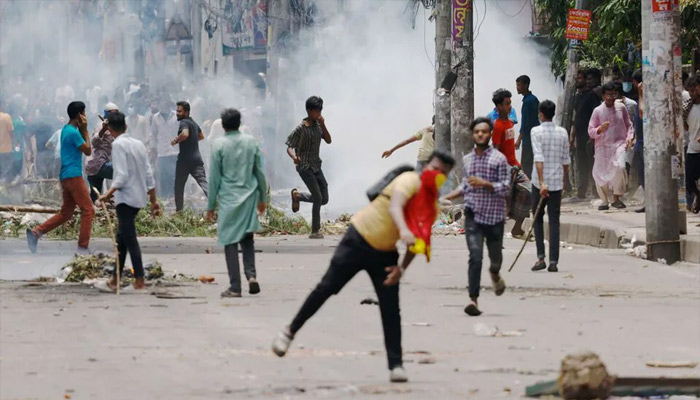Authorities in Bangladesh have imposed a nationwide curfew and granted police “shoot-on-sight” orders as the country’s top court prepares to rule on the contentious job quota that has sparked a nationwide stir by university students.
The Supreme Court is set to issue a verdict on Sunday on whether to abolish the civil service job quota, protests against which triggered violence and clashes that led to the deaths of at least 133 people.
The Supreme Court is due to decide on Sunday whether to abolish the civil service job quotas. The High Court had reinstated the quotas last month after petitions from relatives of 1971 Liberation War veterans, triggering the latest wave of protests.
A strict curfew has been imposed across Bangladesh, with soldiers patrolling cities to quell growing unrest. The curfew was briefly lifted on Saturday afternoon to allow people to run essential errands.
Obaidul Quader, the general secretary of the ruling Awami League party, told news agency AFP that police officers have been granted powers to open fire on those violating the curfew.
The protests, which began on university campuses, have spread across the country, with clashes between police and protesters resulting in at least 133 deaths, including several police officers.
The catalyst for the unrest is a system that reserves more than half of civil service posts for specific groups, including children of veterans from the country’s fight for independence from Pakistan in 1971.
The clashes have prompted the Sheikh Hasina-led government to shut down all public and private educational institutions indefinitely, disrupting the lives of many students, including those from India. Nearly 1,000 Indian students have returned from Bangladesh.
The US State Department has warned Americans not to travel to Bangladesh and is removing some diplomats and their families from the country due to the civil unrest.
Prime Minister Sheikh Hasina further inflamed tensions by comparing the protesters to those who collaborated with Pakistan during the 1971 independence war. Her government has also imposed a communications blackout, with all internet and social media access blocked since Thursday night.
The protests have evolved from a specific grievance about job quotas into a broader movement against Hasina’s government, which has been in power since 2009. The current unrest represents some of the worst violence the country has seen in over a decade.
Prime Minister Sheikh Hasina has defended the quota system, saying that veterans deserve the highest respect for their contributions to the war, regardless of their political affiliation.

